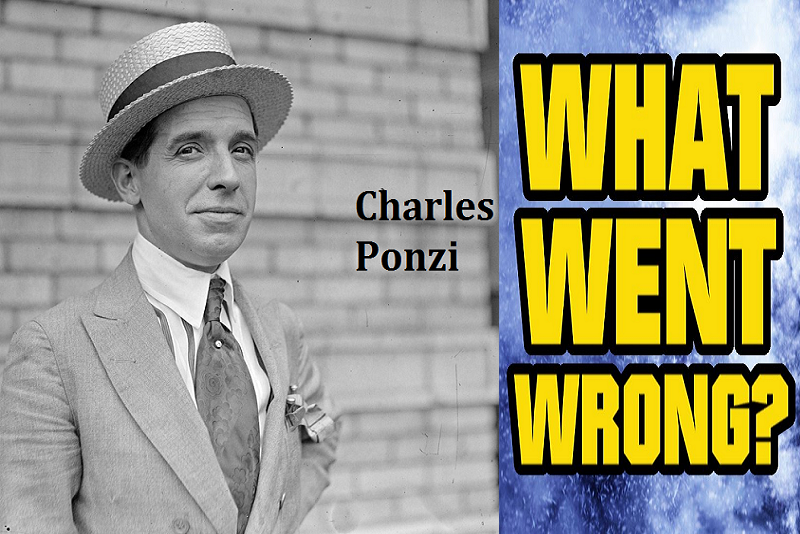BROWSE BY TOPIC
- Bad Brokers
- Compliance Concepts
- Investor Protection
- Investments - Unsuitable
- Investments - Strategies
- Investments - Private
- Features/Scandals
- Companies
- Technology/Internet
- Rules & Regulations
- Crimes
- Investments
- Bad Advisors
- Boiler Rooms
- Hirings/Transitions
- Terminations/Cost Cutting
- Regulators
- Wall Street News
- General News
- Donald Trump & Co.
- Lawsuits/Arbitrations
- Regulatory Sanctions
- Big Banks
- People
TRENDING TAGS
Stories of Interest
- Sarah ten Siethoff is New Associate Director of SEC Investment Management Rulemaking Office
- Catherine Keating Appointed CEO of BNY Mellon Wealth Management
- Credit Suisse to Pay $47Mn to Resolve DOJ Asia Probe
- SEC Chair Clayton Goes 'Hat in Hand' Before Congress on 2019 Budget Request
- SEC's Opening Remarks to the Elder Justice Coordinating Council
- Massachusetts Jury Convicts CA Attorney of Securities Fraud
- Deutsche Bank Says 3 Senior Investment Bankers to Leave Firm
- World’s Biggest Hedge Fund Reportedly ‘Bearish On Financial Assets’
- SEC Fines Constant Contact, Popular Email Marketer, for Overstating Subscriber Numbers
- SocGen Agrees to Pay $1.3 Billion to End Libya, Libor Probes
- Cryptocurrency Exchange Bitfinex Briefly Halts Trading After Cyber Attack
- SEC Names Valerie Szczepanik Senior Advisor for Digital Assets and Innovation
- SEC Modernizes Delivery of Fund Reports, Seeks Public Feedback on Improving Fund Disclosure
- NYSE Says SEC Plan to Limit Exchange Rebates Would Hurt Investors
- Deutsche Bank faces another challenge with Fed stress test
- Former JPMorgan Broker Files racial discrimination suit against company
- $3.3Mn Winning Bid for Lunch with Warren Buffett
- Julie Erhardt is SEC's New Acting Chief Risk Officer
- Chyhe Becker is SEC's New Acting Chief Economist, Acting Director of Economic and Risk Analysis Division
- Getting a Handle on Virtual Currencies - FINRA
ABOUT FINANCIALISH
We seek to provide information, insights and direction that may enable the Financial Community to effectively and efficiently operate in a regulatory risk-free environment by curating content from all over the web.
Stay Informed with the latest fanancialish news.
SUBSCRIBE FOR
NEWSLETTERS & ALERTS
Brokers Persist in Selling ‘Unapproved Products’, But are Blind to Enormous Risks
by Howard Haykin
WHAT WENT WRONG. Between 2013 and 2017, a broker with Quest Capital Strategies sold nearly $11 million in promissory notes issued by Woodbridge Group of Companies to 58 investors, 30 of whom were Firm investors. He did so without providing notice to, nor seeking approval from, his member firm prior to participating in the private securities transactions. For his efforts, the broker earned $261,000 in commissions.
Woodbridge Group of Companies, a high-end real estate developer, promised investors safe returns on short-term notes, which were to be secured by valuable real estate in some of the priciest markets in the country - from the Holmby Hills area of Los Angeles to Aspen, Colorado. Yet, on December 4, 2017, Woodbridge filed a voluntary Chapter 11 bankruptcy petition amid the departure of its chief executive and a year-long federal investigation into potential securities fraud.
In its lawsuit, the SEC charged Woodbridge with using real estate to draw investors into its $1.2 billion Ponzi scheme, with cash coming in from new investors to pay older investors. Legal and real estate professionals are presently liquidating the more than 130 properties in Woodbridge’s portfolio. If things go according to plan, investors could get between 45% and 76 % of what they’re owed. Additional monies may be recovered from other sources: (i) pending lawsuits against the ex-CEO of Woodbridge, Robert Shapiro, and the numerous brokers who sold the promissory notes; and, (ii) possible claw backs against investors who improperly benefitted from company distributions.
FINANCIALISH TAKE AWAYS. The Quest broker in this case, in addition to being barred from the industry by FINRA, is at risk of having his $261,000 in commissions disgorged by the SEC. He also faces at least 7 pending customer disputes that collectively seek collection of at least $1.8 million in alleged damages. There are no winners in this case.
This case was reported in FINRA Disciplinary Actions for January 2019.
For further details, go to ... FINRA Disciplinary Actions Online, and refer to Case #2018057197801.





